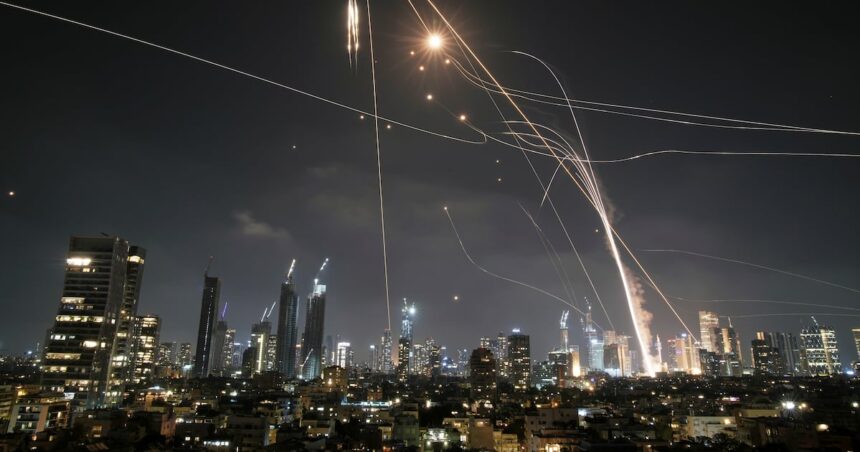The skies over Tel Aviv erupted in chaos shortly after midnight as Iran launched what military officials are calling its most significant missile barrage against Israel since the April exchange that brought the Middle East to the brink of regional war. Israeli air defense systems activated across multiple cities, with residents reporting loud explosions and seeking shelter as warning sirens blared throughout central Israel.
“This is a clear escalation beyond previous attacks,” said Israeli Defense Minister Yoav Gallant in an emergency broadcast. “The Iranian regime has chosen to ignore diplomatic channels and instead pursue a dangerous path of aggression that threatens not just Israeli civilians but regional stability.”
Iranian Revolutionary Guard Corps confirmed the attack through state media, describing it as a “measured response to ongoing Israeli aggression in Gaza, Lebanon, and Syria.” According to Iranian military sources, this latest volley included advanced medium-range ballistic missiles capable of evading detection systems.
The Israeli Defense Forces reported intercepting approximately 85% of incoming projectiles, though early assessments indicate several impacts in non-residential areas near Tel Aviv and Haifa. Emergency services have been deployed across affected regions, with three civilian injuries reported thus far.
This attack marks the third major exchange between the two adversaries in 2025, following the April conflict that saw Iran launch over 300 drones and missiles toward Israel in retaliation for an Israeli strike on an Iranian diplomatic compound in Damascus. That exchange prompted widespread international concern about a potential full-scale war.
U.S. Secretary of State Antony Blinken condemned the attack in the strongest terms, stating that “Iran’s repeated missile strikes represent a dangerous escalation that undermines peace efforts across the Middle East.” The Pentagon confirmed that U.S. naval assets in the region assisted with missile defense operations, highlighting America’s continued military support for Israel.
Meanwhile, the United Nations Security Council has called an emergency session for tomorrow morning. UN Secretary-General António Guterres urged “immediate restraint from all parties” while expressing concern that “the cycle of retaliation threatens to engulf the entire region in a catastrophic conflict.”
Financial markets have already begun reacting to the news, with oil prices jumping 4.7% in early Asian trading and global stock indices falling on fears of regional instability affecting energy supplies. Analysts at Goldman Sachs warn that sustained conflict could push oil prices above $110 per barrel, potentially triggering broader economic consequences.
For ordinary Israelis, this attack represents yet another night of fear and uncertainty. “We’ve been through this before, but it never gets easier,” said Rachel Goldstein, a Tel Aviv resident interviewed while seeking shelter. “My children now know exactly what to do when the sirens sound—no child should have to live this way.”
The timing of this attack coincides with stalled ceasefire negotiations in Gaza, where Israeli operations continue after 18 months of conflict. Regional experts suggest Iran may be attempting to pressure Israel through multiple fronts, including support for Hezbollah in Lebanon and Houthi rebels in Yemen, who have targeted Israeli shipping lanes.
As dawn breaks over a tense Middle East, the critical question remains: will Israel’s response follow the pattern of measured retaliation established earlier this year, or could this latest provocation trigger the wider regional conflict that diplomats have been desperately working to prevent?
For continuing coverage of this developing situation, visit our World News section or follow our Breaking News updates.










